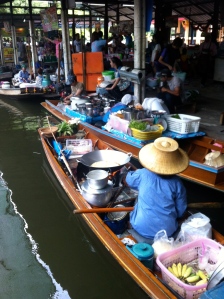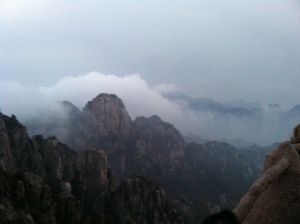People watching is one of the best ways to learn about another culture. And hands down one of the best places to people watch in Beijing is in Tiananmen square and you will no doubt see mostly Chinese tourists. If you want to check out another post about my Tiananmen reflections, check here.
Many of these Chinese people are visiting in hoards of groups, with a majority of them being middle-aged or elderly. They usually are wearing a ball cap of some sort perhaps a yellow hat or red one. Their leader is carrying a Chinese flag and continually reminding them to follow accordingly. Most of the Chinese men are thin and wearing dark clothing that is ten sizes too big for them. Their skin is dark and they enjoy taking breaks to have some sunflower seeds and their wives are unpacking the food they cooked themselves perhaps brought all the way from home wherever that may be. The biggest thing I’ve noticed is how wide-eyed they are looking around like children in a candy shop which is the best way to look around.
I wondered how far these Chinese tourists had traveled to see Tiananmen square. Was this their first time in Beijing? Was this the first time they had left their home town? Did they like Beijing cuisine? What is their home town like? Did they my shorts were inappropriate? These are the things I think about, y’all.
Right next to Tiananmen square is The National Museum which is fabulous to see. It’s exterior represents Stalinist Russia’s influence on 1950’s China. Its interior has some fabulous exhibitions, especially ancient China’s exhibition. But perhaps the most striking thing was reading the captions of some of the exhibitions because they clearly had a flair of propaganda infused throughout. For example, This quote comes directly from the entrance to an exhibition:
” The current exhibition is presented in memory of the past and to warn future generations. Let us stand closely around the CPC central leadership with Xi Jinping as the general secretary of CPC and take efforts to build socialism with Chinese characteristics. We should stick to peaceful development and world peace. Let us continue our endeavor to build a moderately prosperous society in all respects, to build a strong democratic, culturally advanced and harmonious socialist country and to fulfill the Chinese dream of great renewal of Chinese nation! Let us continue our peace and development for all of human kind. ”
There were many other quotes similar to this and as I was reading it to myself in the museum, another foreigner walked up to me and said ” Don’t you find this all a little strange?” And while I did, after living in China for a year, I felt that I understood it.
I showed this quote to all of my Chinese colleagues and they too thought it sounded very propoganda-laden and over the top but to a different generation, these words still ring so true. As I was taking a photo of this quote, several elderly Chinese men and women walked up and proudly posed in front of the quote in Chinese and I could see them all smiling and nodding their heads. These were the same people I had seen so wide-eyed outside of Tiananmen.
The amount of change that this generation has experienced, still boggles my mind. Some of them have been alive to see a country go from one of no centralized government to one of the most powerful nations in the world. They have seen their families quality of life improve more in the span of one generation than six or seven generations prior. I’m sure some of them have suffered in different ways due to drastic changes in the country, but they still stand so very proud of their country.
And that’s pretty cool to see.
























